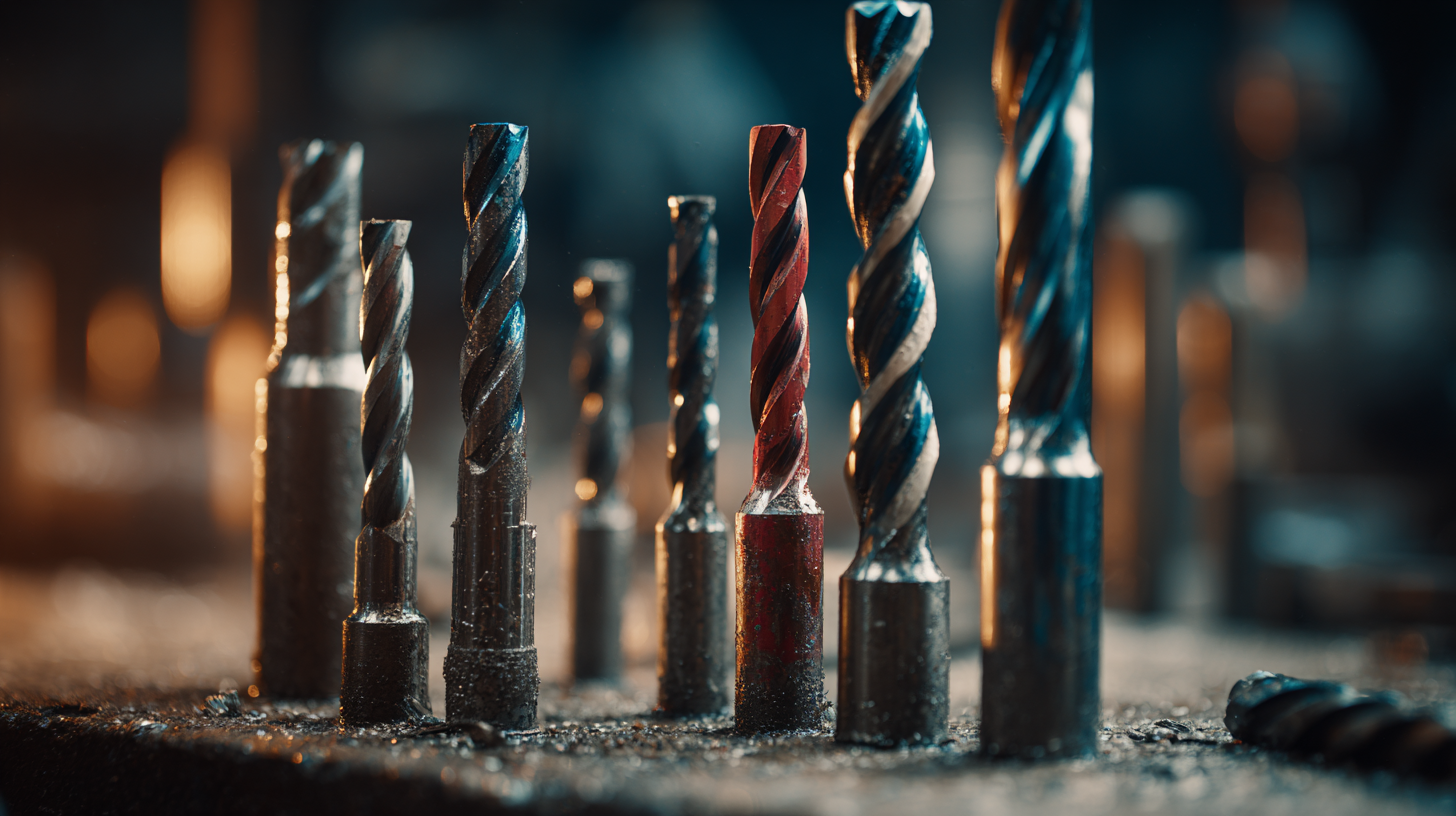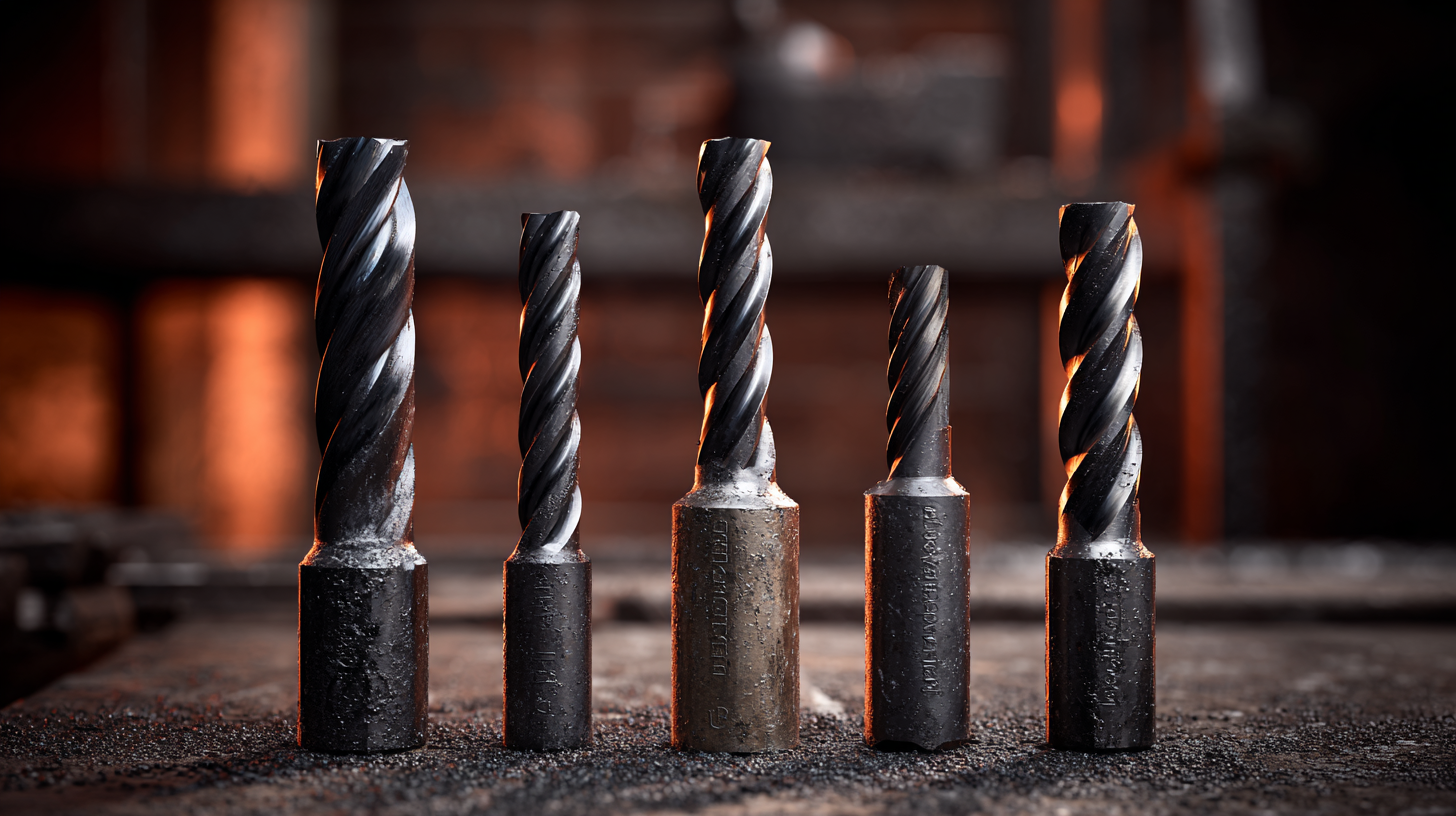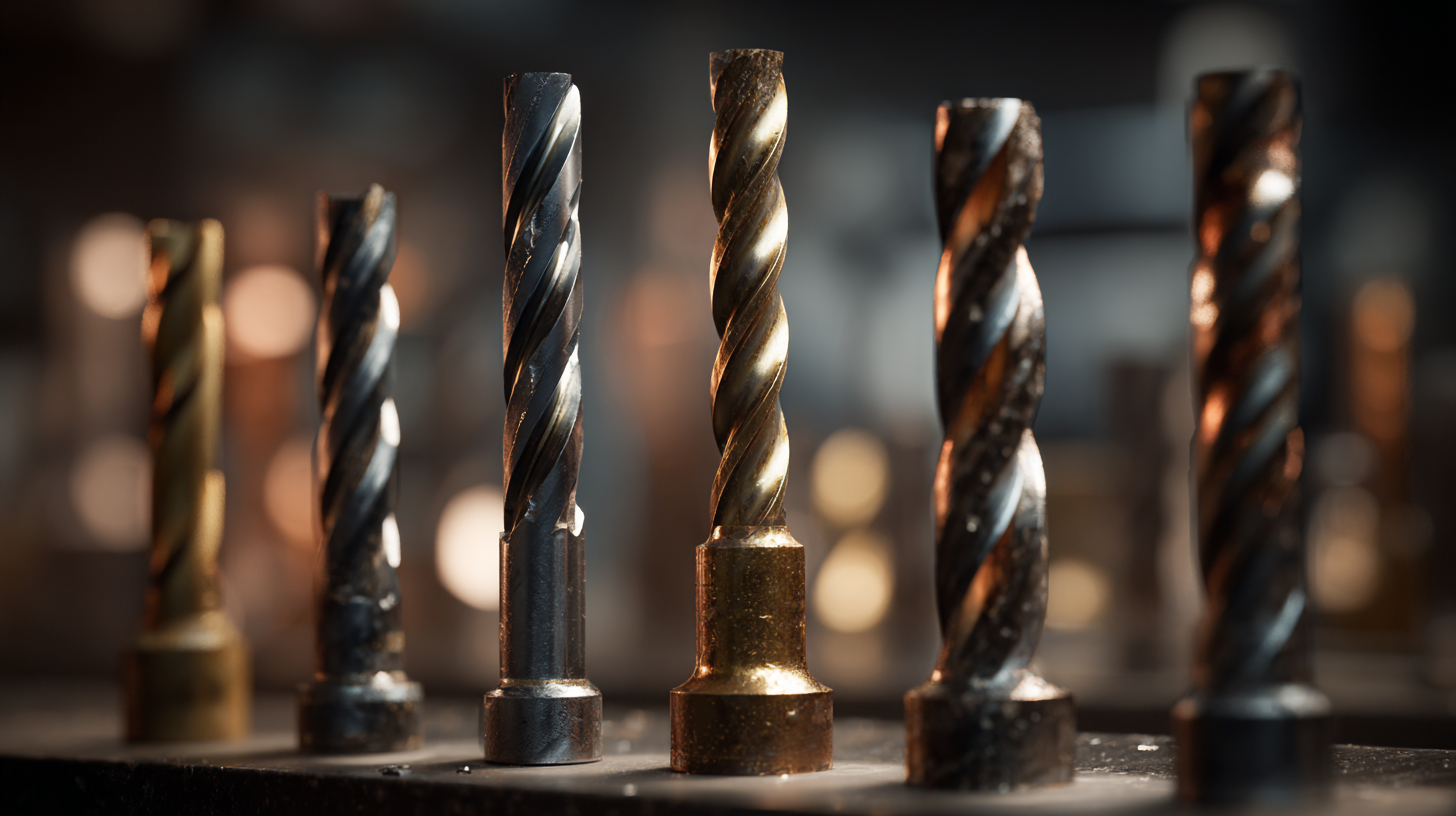FREE SHIPPING ON ALL BUSHNELL PRODUCTS
Leave Your Message
In today's fast-paced industrial landscape, the significance of high-quality drill bits cannot be overstated. With the global drill bit market expected to reach approximately $21 billion by 2026, as per a report by MarketsandMarkets, the demand for precision and durability in drilling tools has surged across various sectors. From construction and manufacturing to aerospace and automotive industries, drill bits play a pivotal role in ensuring efficiency and safety in operations.

China's manufacturing prowess has earned worldwide respect, particularly for its emphasis on quality and innovation in tooling solutions. As industries continue to evolve, understanding the real-world applications of the best drill bits helps companies optimize their operations, reduce costs, and improve product quality, underscoring the essential role of these tools in thriving economic environments.
Drill bits are essential tools across various industries, each designed with unique features to tackle specific tasks. For instance, twist drill bits are the most commonly used type, suitable for general-purpose drilling in wood and metal. According to a report by Freedonia Group, the demand for drill bits is projected to grow by 5.1% annually, reflecting an increasing need for efficient machining processes in manufacturing sectors. The efficiency of a twist drill is often attributed to its spiral design, which aids in the removal of chips and heat dissipation, significantly improving drilling accuracy and speed.
Another significant type is the masonry drill bit, specifically engineered for penetrating hard materials like brick and concrete. Data from Mordor Intelligence indicate that the construction industry accounts for nearly 40% of global drill bit consumption. The unique carbide tip of masonry bits allows them to withstand the harsh impact forces associated with drilling through tough surfaces, which is crucial for renovations and infrastructure development. Additionally, specialized bits such as the step drill are favored for creating wide holes in thin materials, demonstrating the need for diverse tools tailored to industry-specific applications. Such innovations highlight how understanding different drill bits and their features can lead to improved performance and productivity across various sectors.

In today's industrial landscape, advanced drill bit technology plays a pivotal role across various sectors, including construction, aerospace, and manufacturing. Each of these industries has unique drilling requirements, and the best drill bits are tailored to meet these specific needs. For instance, in construction, diamond-tipped drill bits are favored for their durability and ability to penetrate hard materials like concrete, providing efficiency on job sites. Aerospace industries rely on specialized cobalt drill bits that can withstand high temperatures, ensuring precision in fabricating intricate aircraft components.
When selecting drill bits for your projects, consider the material you will be working with. Using the wrong type of bit can lead to inefficiencies and poor results. **Tip:** Always match the drill bit to the specific material—wood, metal, or masonry—to maximize performance. Additionally, regular maintenance of your drill bits can extend their lifespan. **Tip:** Sharpen your bits when they start showing signs of wear and tear, as this will enhance efficiency and save costs in the long run. Investing in quality drill bits tailored to your industry requirements isn't just a choice; it's a necessity for achieving high-quality results.
| Industry | Application | Type of Drill Bit Used | Benefits |
|---|---|---|---|
| Construction | Drilling foundations and concrete walls | Masonry Drill Bits | High durability and precision |
| Oil and Gas | Borehole drilling | PDC Drill Bits | Enhanced penetration rates and longevity |
| Mining | Ore extraction | Diamond Drill Bits | Superior cutting capabilities |
| Manufacturing | Component fabrication | High-Speed Steel (HSS) Bits | Versatile and cost-effective |
| Automotive | Drilling engine components | Cobalt Drill Bits | Heat resistant and long-lasting |
When selecting the right drill bit for your project, it’s essential to consider several key factors that can significantly impact efficiency and outcomes. According to a report by the Industrial Supply Association, approximately 30% of tool-related project delays stem from the improper selection of drill bits. This emphasizes the importance of understanding the material you will be working with. For example, high-speed steel (HSS) bits are ideal for wood and soft metals, while carbide-tipped bits excel in harder materials like stainless steel and masonry.

Another critical strategy involves matching the drill bit type to the task at hand. Research published by the Tooling & Manufacturing Association indicates that using the correct bit can enhance drilling speed by up to 50%. For precision drilling, split-point bits can help maintain accuracy, while twist bits can be advantageous for general-purpose tasks. Additionally, considering the coating of the drill bit—such as titanium nitride—can increase durability and reduce friction, further optimizing performance and extending the lifespan of the tools used in various industries.
In today's fast-paced manufacturing landscape, innovative drill bit designs are significantly transforming production processes across various industries. One standout development is the introduction of specialized concrete drill bits equipped with advanced cutting technologies. These drill bits enhance efficiency and precision, allowing for faster operations while minimizing wear and tear. Coupled with the rise of automated drilling systems, companies can expect to greatly streamline their workflows and reduce downtime.
Moreover, the integration of AI in drilling technology is paving the way for more intelligent manufacturing processes. With features like AI-powered mineral detection, businesses can improve resource identification and enhance operational effectiveness. Also notable are advancements in 3D printing techniques, which are being utilized in mining applications to further evolve traditional processes. These innovations not only optimize production times but also encourage sustainability in resource management, making the industry more resilient and responsive to market demands. As technology continues to advance, the potential for drill bit designs and their applications will only grow, positioning companies at the forefront of manufacturing excellence.
In the construction and manufacturing industries, the selection of optimal drill bits can significantly impact productivity and cost-efficiency. For instance, a recent report by the Bureau of Labor Statistics highlights that construction projects utilizing specialized drill bits can reduce drilling time by up to 30%, allowing projects to stay on schedule and under budget. One notable case is the use of diamond-coated drill bits in geotechnical drilling, which enabled contractors to penetrate hard rock formations swiftly, enhancing their overall operational efficiency. Many companies reported saving thousands in labor costs due to the increased speed of their drilling operations.
In the automotive industry, the implementation of custom-designed drill bits has also seen remarkable success. According to a study published in the Journal of Manufacturing Science and Engineering, manufacturers using high-speed steel drill bits tailored for specific materials achieved a 25% improvement in hole quality and a 15% increase in production rates. A leading automotive manufacturer, for example, adopted this technology for their assembly lines, resulting in a significant reduction of scrap rates and improved durability of components.
These case studies exemplify how the right drill bit selection can make a profound difference in various industrial settings, driving success through innovation and technology.
